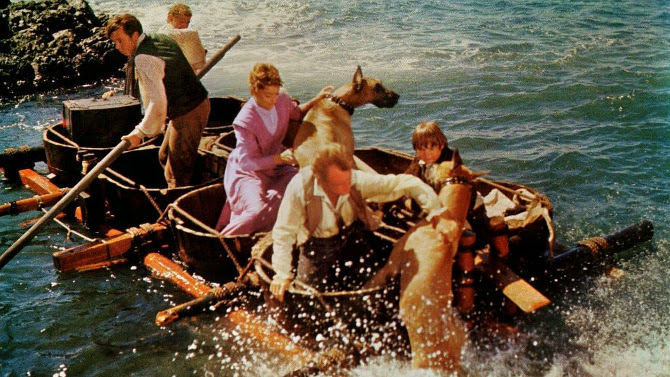
Safety First
Like a severe and utterly serious version of Stanley Kubrick’s 1964 satirical dark comedy Dr. Strangelove or: How I Learned to Stop Worrying and Love the Bomb, you would think that Fail Safe would have been the original release in theatres that was then later spoofed, yet that is not the case. Released approximately six months later in the same year, as you might imagine, it led to very poor returns at the box office – dare I say it (as the film deals with this subject matter)... it was a bomb! Despite that, over time, it has become a bonafide classic. Based upon Eugene Burdick’s 1962 novel of the same name and directed by Sidney Lumet (Dog Day Afternoon), he introduces us to our main players by way of little vignettes.
-
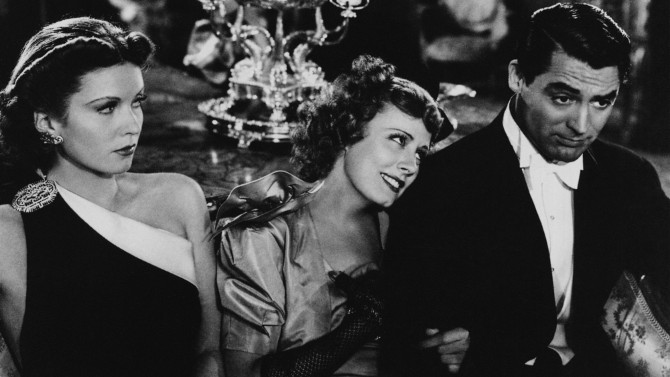
The Truth, the Whole Truth, and Nothing But the Truth
The Awful TruthAugust 26, 2018In one of the most frank speeches in Oscar history, Leo McCarey, upon winning the Academy Award for Best Director, took the statuette, and boldly stated, “I want to thank the Academy for this wonderful award. . . but you gave it to me for the wrong picture”. For those who have seen Make Way For Tomorrow, you will immediately know why he said it (a picture with a message and one of the great endings in film history, Orson Welles once claimed, “it would even make a stone cry”), but, that is not to say that the movie that he won for, 1937's The Awful Truth, is not deserving of some praise. A motion picture that helped put the screwball comedy on the map (The Awful Truth was based on a 1922 play by Arthur Richman and filmed twice before this version), it earned six Oscar nods (claiming the trophy for McCarey) – a darling to critics and one of the top commercial successes of the decade, while its irreverent mix of slapstick (it immediately evident that McCarey directed silent comedies; for example, the works of Charlie Chase and Harold Lloyd, while also pairing Laurel and Hardy together, and into the sound era, The Marx Brothers), witty repartee, and folly filled characters make it an absolute charmer.
-
Star Pick with Scott Wilson
 Battleship: Russian StyleBattleship PotemkinJuly 24, 2018
Battleship: Russian StyleBattleship PotemkinJuly 24, 2018A while back, I sat down with the great Scott Wilson. Perhaps known more recently as Hershel on The Walking Dead, he has been busy carving out an interesting career over the past five plus decades. Starting off with roles in two classics, In the Heat of the Night and In Cold Blood, since, he has graced the silver screen in films such as 1974's The Great Gatsby, The Ninth Configuration, Johnny Handsome, Young Guns II, The Exorcist III, Dead Man Walking, Shiloh (and its two sequels), G.I. Jane, Pearl Harbor, The Last Samurai, The Host, and a small but integral turn in this past year’s Hostiles, while recently, he has appeared on television series including CSI: Crime Scene Investigation, Bosch, and The OA. . . this much shortened filmography gives you a small idea of the impact he has made in the industry.
-
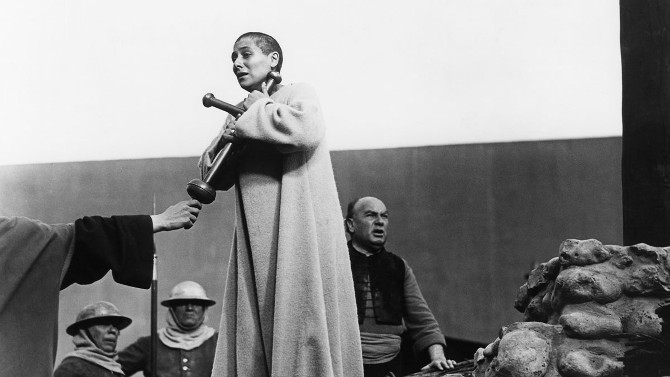
Jeanne Dark
The Passion of Joan of ArcJuly 15, 2018A tale with some eerie similarities to its real-life character, filmmaker Carl Theodor Dreyer set out to make a motion picture on the legendary Joan of Arc. Upon its completion in 1928 (The Passion of Joan of Arc), he was hounded by French nationalists, French government censors and the Archbishop of Paris, first complaining that a Dane (who is not Catholic) could not do justice to the greatest of French stories, then taking aim at the film itself – whitewashing the narrative (the French premiere eliminated the nastiness of the Judge and religious theologians and priests, as well as any other edgy visuals), thus leaving it in a truncated form that truly disgusted the screenwriter/director (a semblance of being tried by jury). Then, a truly disastrous event occurred – the original film negative burned in a fire at the UFA Studios in Berlin (a truly bizarre coincidence). . . the filmmaker distraught, was forced to piece the entire film back together by way of all of his discarded footage and alternate takes (a perfect example of the director’s extensive attention to detail, the movie was reconstructed to a very similar state that very few would be able to differentiate – though obviously Dreyer was less than pleased). Fate once again reared its ugly head when a lab fire burned this copy, leaving just a few extremely damaged prints (based upon both the original first and second cut) that had been circulated across Europe. Edited and changed by future hands, it was long believed that no one would ever see the man’s original vision again (the prints that survived were often missing twenty plus minutes, were chopped up and were changed to suit the meddling hands of re-releasers – some had added narration, others injected Baroque scores and changed the intertitles).
-

Zombification
Day of the DeadJuly 4, 2018They first appeared late one night, which then led to the dawn of a new, more frightening day. . . now, they own said day – the third in George A. Romero’s anthology zombie franchise, 1985's Day of the Dead finds a small group of desolate individuals attempting to survive the ever growing and encroaching human eating hordes, a task that is easier said than done. Featuring a three pronged attack, Romero (who writes and directs) utilizes touches of German Expressionism, 60s psychological horror (think Roman Polanski’s Repulsion) and brutal gore to keep his audience on its toes. Our survivors are cloistered away in an underground military camp – a ragtag team pieced together in the final days of organized chaos to search for some sort of cure for the growing number of undead. They do, from time to time, head out in their helicopter, searching for survivors – the famed Edison theatre in Fort Myers, Florida, can be seen in the opening sequence.
-
Fantasy Island
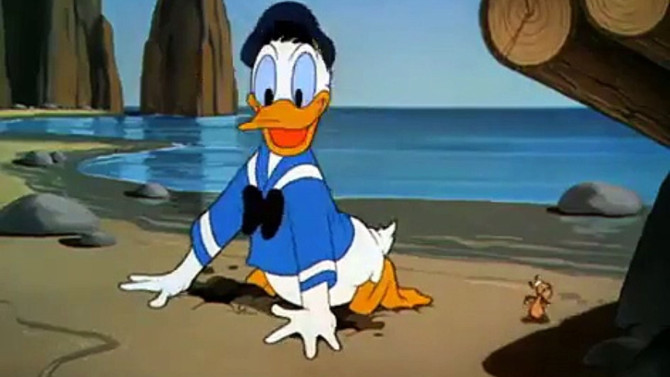 Sea SaltsSwiss Family RobinsonJuly 1, 2018
Sea SaltsSwiss Family RobinsonJuly 1, 2018Ah, the way things were. Revel in the past for a moment, won’t you. Imagine walking into a movie theatre in 1960, preferably one built in the golden age of film watching – mohair seats, architectural detailing (crown moulding, wooden panelling), a proper sized atrium. . . and, as you make your way to your place, enjoying some popcorn as the lights dim, you are not bombarded by numerous commercials that take you out of that magic place (and sadly reminding you of the business-centric reality of show business), but rather, are greeted by an animated short, 1949's Sea Salts, the perfect lead-in to your Disney feature, Swiss Family Robinson. These two films did show back to back upon Swiss Family Robinson’s initial run, so they will both be reviewed here. Sea Salts, directed by Jack Hannah, finds ‘Mac’ Bootle Beetle (Dink Trout) recalling his long, rather unusual friendship with sea captain Donald Duck (Clarence Nash) – the pair were forced to abandon ship long ago, finding themselves stranded on a tiny, uncharted isle.
-
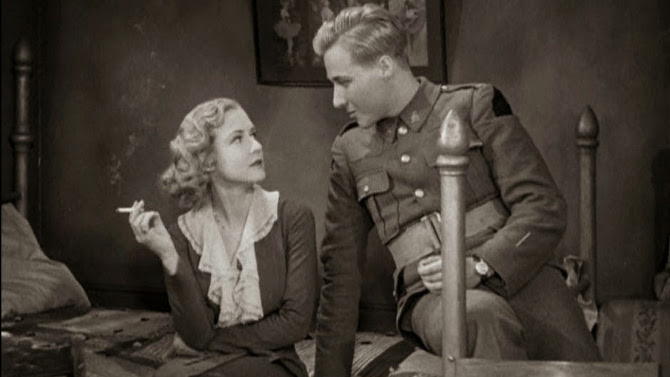
Waterloo… Couldn’t escape if I wanted to
Waterloo BridgeJune 19, 2018One of the great horror directors of the 1930s, James Whale shot Frankenstein, The Old Dark House, The Invisible Man, and The Bride of Frankenstein in just four short years, an impressive feat that also somewhat overshadows a few of his lesser known, non-spook related features – specifically, 1931's Waterloo Bridge. . . which, interestingly enough, earned Whale so much favour with the head of Universal Pictures’ production department, that Carl Laemmle, Jr. (due to a combination of his quality work and coming in under budget), gave the director the choice of anything the studio had in early planning stages – the filmmaker chose Frankenstein, a smart decision. His Waterloo Bridge is based upon Robert E. Sherwood’s 1930 Broadway play of the same name (the playwright based it upon many of his own experiences), where we are transported to London, England, circa World War I. Stuck in the metropolis is Myra (Mae Clarke), a chorus girl who has fallen on hard times.


